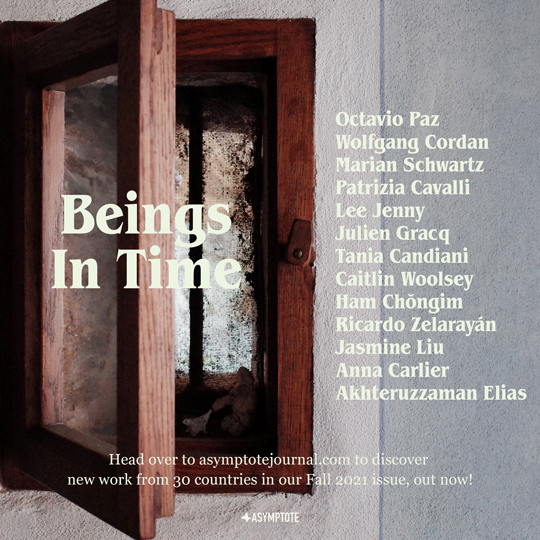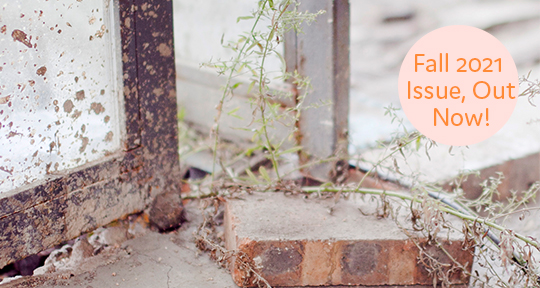In Asymptote’s just-released Fall 2021 Edition, “Beings in Time,” headlined by Octavio Paz and Marian Schwartz, time is painfully distended for many of the narrators in this issue as it has been for us. With Jakuba Katalpa and Wolfgang Cordan, in particular, revisiting dark chapters in recent human history, it was a deliberate choice to bookend the Fiction and Poetry sections with Patrizia Cavalli’s irrepressibly joyful “Dancing Shoes” and Ricardo Zelarayán’s thrilling narrative poem “The Great Salt Flats.” Kim Bo-Young’s I’m Waiting for You, reviewed with gusto by Cristy Stiles, sets time travelers in endlessly inventive scenarios. In Brave New World Literature, Caitlin Woolsey encounters, at age twenty-one, the timeless Bedouin oral tradition of Jordan’s people. Elsewhere, in Drama, Anna Carlier transports us to a future ecological nightmare, where “half the world is drying up” and “the other half . . . drowning,” with no way to tell if the clock is “counting up or . . . down.” All is illustrated by our guest artist the brilliant photographer Genevieve Leong.
Our wildcard Special Feature this issue spotlights the work of institutional advocates: Russia’s Institute for Literary Translation, the Lithuanian Cultural Institute, Catalan Culture’s Institut Ramon Llull, and the Literature Translation Institute of Korea agreed to take the same set of ten questions posed by our editor-in-chief. The result is a fascinating cross-cultural snapshot of the role of an otherwise mostly invisible player in world literature.

Whenever and wherever we are, we can all spread the news of Asymptote’s latest wonders on Facebook, Instagram, or Twitter, where we will be plugging every single article in a 40-hour marathon. If you’re keen to spread word in real life, we invite you to download and distribute this magnificent flyer of the issue (pictured above). Many thanks from us at Asymptote!


